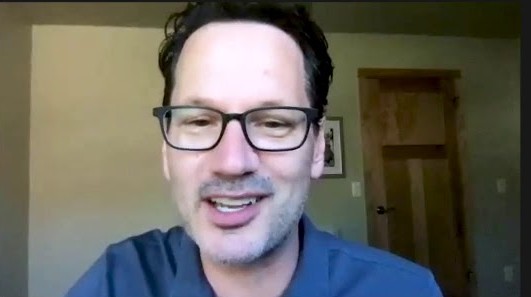Mark Webster handles change for a living.
The Madison native has run political campaigns and worked in Congressional offices, and for more than 20 years has run his own strategic communications firm, Mark Webster Communications, as well as MWVC Partners, which helps businesses navigate through times of change.
And the coming months and years, as the US emerges from the coronavirus pandemic, there’s going to be a lot of change to manage.
On a recent episode of Real Talk with Henry Sanders, Webster said those businesses who really know their purpose are the ones who will survive.
“This time we’ve been in is really telling for organizations and how prepared they were and not just financially and not just like medically for this crisis, but how prepared they were for the purpose of what they do,” he said. “Those who know what they do and why they exist and the value they add to their customers are coming through this stronger. They’re having short term problems. They’re having financial problems, sales are down, things are happening. But big companies that know who they are and have a brand that they identify with are actually doing okay.”
He said remaining authentic will help businesses recover, even if it takes a while.
“Those who do better in crisis know who they are,” he said. “First and foremost, be authentic to who you are. If you have a small business and you treasure the home recipes that your grandma made and you have been making ribs for your customers or making homemade pies for your customers for 40 years, the core value here is love and respect and honor.”
Webster invoked the famous psychological concept of Maslow’s hierarchy of needs, which puts posits that basic survival needs have to be met before needs like leisure and self-actualization can even be considered. He said many American consumers have spent a lot of time in that self-actualization place, but that’s changing rapidly.
What’s happening now is many people are way back to the survival stage. They’re not sure if they can make their house payment. And there’s parts of America who’ve been in that survival stage for a very long time and have learned to cope with it and those people can do very well. There are certain people who have been in the actualization stage thinking about their next trip on a first class of sleeper seat with their fancy luggage thinking, ‘I want to take some great posts for Instagram.’ Now I’m often in that space. I now realize how fragile the world is, how fragile the economy is. So if you’re talking to a CEO reopening a company, you have to start with the basic fundamentals of where are your customers right now and where is your workforce?”
He said the workforce especially might need a little extra attention right now.
“As a leader, start understanding the situation you’re in,” he said. “There are four or five levels of situational leadership. Sometimes you have to mentor and coach and give real direct feedback. And sometimes you have to kind of sit back and let people learn. This is a time, I think, for a lot of direct, hands-on coaching from leaders because people are afraid.”
Webster also said consumers are afraid, and businesses need to clearly signal that they take their fears seriously.
“You’re going to have to have hand sanitizer out. You’re going to have to have signs out for the foreseeable future,” he said. “You’re going to have to signal to people that we get you, we hear you, we’ve responded and it may have additional costs.”
It’s also important, Webster said, to try to move forward without necessarily trying to get back to normal.
“I don’t think we’re going to reopen and have everything go back to normal,” he said. “People are talking about the new normal. What I like to tell clients is after 9/11 we knew we were going to always lock the cockpit door. The cockpit door is closed forever. What is the new cockpit door? Is that masks the whole time for the rest of our lives? I don’t think so. But there’s going to be another cockpit door and there are both pitfalls and opportunities to figure out what that door is.”


































